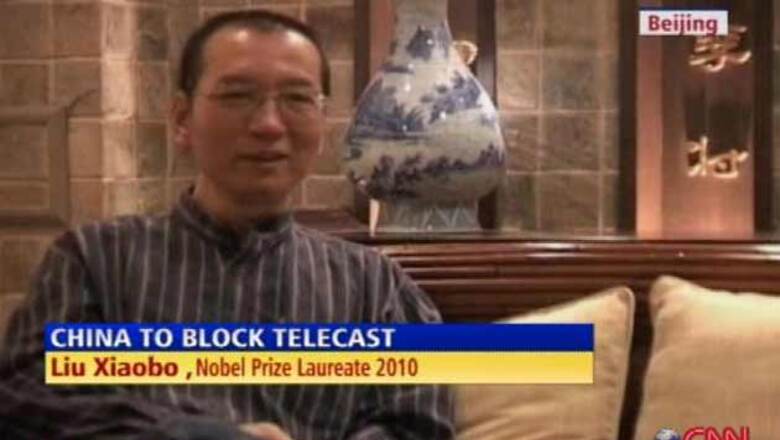
views
Oslo: When ambassadors, royalty and other VIPs take their seats in Oslo's modernist City Hall on Friday for the Nobel Peace Prize ceremony, there will be one chair left empty for this year's winner.
Nobel laureate Liu Xiaobo, a democracy activist, is serving an 11-year prison sentence in China on subversion charges brought after he co-authored a bold call for sweeping changes to Beijing's one-party communist political system.
Chinese authorities have placed Liu's supporters, including his wife Liu Xia, under house arrest to prevent anyone from picking up his prize.
China was infuriated when the prestigious $ 1.4 million prize was awarded to the 54-year-old literary critic, describing it as an attack on its political and legal system.
Beijing has also pressured foreign diplomats to stay away from today's ceremony. China and 18 other countries have declined to attend, including Russia, Pakistan, Iran, Venezuela and Cuba.
At least 45 of 65 embassies in Oslo have accepted invitations.
Nobel committee secretary Geir Lundestad said Liu will be represented "by an empty chair ... the strongest possible argument" for awarding it to him.
It will be the first time the peace prize will not be handed out since 1936, when Adolf Hitler prevented German pacifist Carl von Ossietzky from accepting the award.
The prize can be collected only by the laureate or close family members. Cold War dissidents Andrei Sakharov of the Soviet Union and Lech Walesa of Poland were able to have their wives collect the prizes for them. Myanmar democracy activist Aung San Suu Kyi's award was accepted by her 18-year-old son in 1991.
Among the 1,000 guests expected at the City Hall ceremony are House Speaker Nancy Pelosi and US Ambassador Barry White. In addition, about 100 Chinese dissidents in exile and some activists from Hong Kong will attend.
A torchlight parade through the dark, wintry streets to the Grand Hotel will follow, with chosen guests dining at a banquet with Norwegian King Harald and Queen Sonja. Lundestad said countries gave various reasons for not attending, but some were "obviously affected by China." He noted that two-thirds of embassies had accepted.
China warned that attending the ceremony would be seen as a sign of disrespect.
"We hope those countries that have received the invitation can tell right from wrong, uphold justice," Foreign Ministry spokeswoman Jiang Yu said.




















Comments
0 comment